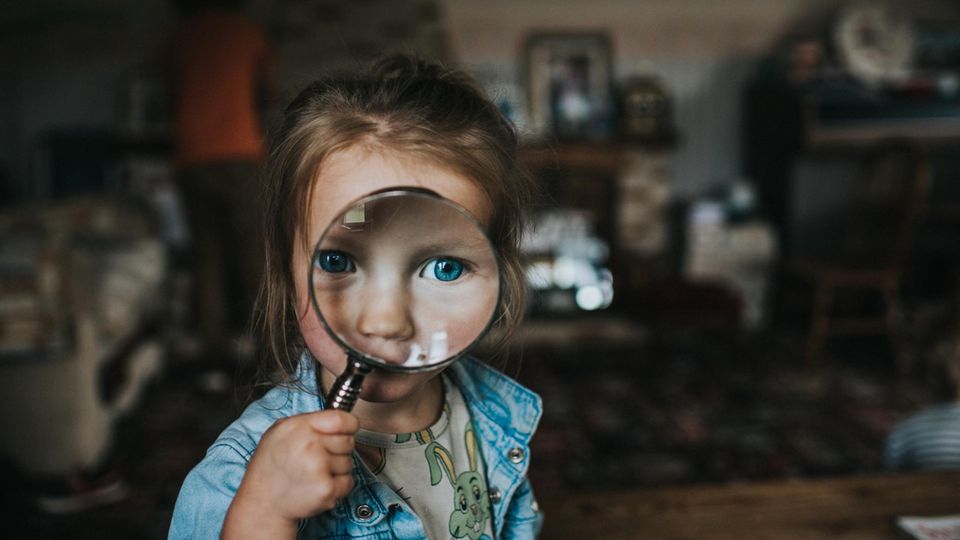Research
Participating researchers wanted: Which leg does your dog lift to pee?
Copy the current link
Add to watchlist
The trend comes from England and is becoming increasingly popular here too: in citizen science projects, laypeople collect data for science. Would you like to join in? Here are five projects.
The feeling is magical: discovering a piece of the puzzle and adding it to the vast picture of world knowledge. Many scientists and researchers know this: Even if they only have a tiny new insight, they still become part of human history, part of progress. The nice thing: You don’t have to be a scientist to do science and have this feeling.
Every citizen can take part in research projects. And not as guinea pigs, but as explorers. Citizen Scientist. They catch mosquitoes and send them to the makers of a mosquito atlas. They document plastic waste washed up on the North and Baltic Seas. They look for wild animals in the photos taken by automatic cameras. Or they observe their dog’s behavior using standardized criteria and thus help to understand dogs better. More than 160 citizen research projects are currently underway, launched by scientists from all disciplines in Germany. Any layperson can take part and contribute to research.
Citizen Science: Every smartphone is a small research station
In recent years, “Citizen Science,” as the branch is called in English-speaking countries, has grown enormously. No wonder: thanks to digital networking and, above all, the spread of smartphones, everyone has in a way a small research station included, camera for documentation included. Serious research has long benefited from this; There are more and more publications in specialist journals with data collected by laypeople.
Citizen science gives scientists access to data that they would not be able to collect otherwise. No team of researchers would have the time or personnel to take and analyze soil samples across Europe, so a map of the… soil condition in Europe arises.
In many areas, science is only possible through citizen science. “Science is like a big, complex one Expedition, a kind Himalayan expedition to the land of knowledge. Many are involved,” writes Peter Finke, former professor of philosophy of science at Bielefeld University and author of the book “Citizen Science: the underestimated knowledge of laypeople.”

In the following, get to know five exciting current projects from Germany – perhaps one will be so attractive that you will become a citizen researcher yourself, if you are not already one.
-
The smart bird watching station for my garden
In the project “How diverse is my garden?” Citizens can set up smart feeding stations that are equipped with sensors such as cameras, scales, microphones and environmental sensors (e.g. thermometers). As soon as a bird passes by, it is automatically recorded, counted and – using AI or image analysis – assigned to a bird species. The station also collects environmental data and sends it in real time to an open data platform. On one day, for example, 719 birds visited a single station. The project highlights the potential of gardens: it is estimated that the area of all private German gardens roughly corresponds to the area of all German nature reserves. The only catch: You don’t get the smart feeding station for free, there are only building instructions. After all, support is offered during construction and installation. -
Preserve the past
Memorial plaques in and on churches, cemeteries and parks are often exposed to the weather. The “Epitaph Project Brandenburg” calls for people to photograph and write down memorial plaques or artistic memorial plaques in churches, chapels, on cemetery walls or historic buildings in Brandenburg and Berlin. The inscriptions are transferred into digitally readable text. In this way, the project not only secures historical sources. The contents are also classified by historians in terms of cultural history, creating a register of monuments and at the same time Research tool for social history.
-
What is my dog doing there?
Attention dog owners: The University of Münster runs the citizen science project “WAU – The Dog Study to go!”. Dog owners download an app and then record behavioral observations of their dog or bitch. For example, how it spins (in which direction), which leg is lifted when urinating or other side preferences. After each observation, the citizen researchers also provide an assessment of the dog’s emotional state. The goal is to better understand emotions and personality in dogs and to identify possible connections between side-specific behavior and mood explore.
-
Germany is mapping mosquitoes
The “Mosquito Atlas” project has been around since 2012. Citizens catch mosquitoes – for example with nets or traps or by collecting found specimens. They preserve the mosquitoes, for example by drying or freezing them, and send them to the project. The mosquitoes submitted are identified. The Mosquito Atlas complements classic mosquito monitoring programs by widely distributing submissions, including from areas that are difficult to access scientifically. It therefore also serves as an early warning system: invasively introduced species that could transmit pathogens can be identified at an early stage. The project is very popular: this year alone, more than 40,000 mosquitoes have been sent in and analyzed. This may also be because it is intended that every submitter will receive feedback about the mosquito they have submitted.
-
Looking for plastic
“Plastic Pirates – Go Europe!” is a Europe-wide citizen research initiative in which primarily school classes and youth groups (around 10 to 16 years old) are active. A group selects a section of bank on a river, stream, canal or on the coast and collects all the pieces of garbage (macroplastic) on the bank, documents them according to specifications, counts and categorizes them. They also look for microplastics. To do this, use nets with a mesh size of one millimeter, if possible. The aim is to research plastic waste pollution in Germany’s waters.
If you would like to look at other current projects, go to Find what you’re looking for, there are currently – as of October 2025 – more than 160 citizen science projects gathered there.
Source: Stern
I’m Caroline, a journalist and author for 24 Hours Worlds. I specialize in health-related news and stories, bringing real-world impact to readers across the globe. With my experience in journalism and writing in both print and online formats, I strive to provide reliable information that resonates with audiences from all walks of life.




